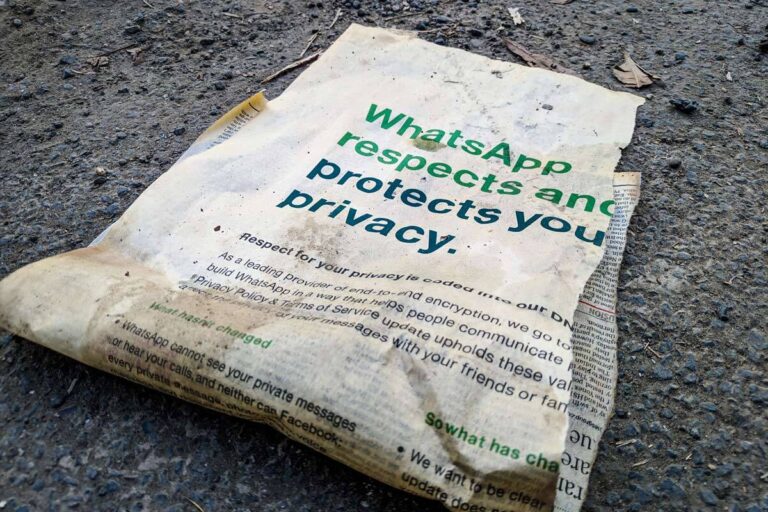WhatsApp sues Indian government over ‘mass surveillance’ allegations

Earlier today it was announced that WhatsApp, popular for its encrypted messaging service, is filing a lawsuit against the Indian government over new laws that will apparently “fundamentally undermine people’s right to privacy.” The new laws will essentially break end-to-end encryption on its platform—which keeps communications on the app private and inaccessible to outside parties.
The new laws were passed in February and were due to come into effect on 15 May 2021. Once in action, 400 million Indian users who use the Facebook-owned messaging service will instead have their messages stored in a “traceable” database, giving the government the power to identify and take action against any person sending content that is ruled “unlawful.”
However, encryption is not just used for ‘unlawful’ activity, protecting encryption is also about protecting democracy. The legislation may also impact innocent Indian citizens. WhatsApp has stated that tracing messages would be ineffective and susceptible to abuse—forcing the handing over of the names of people who shared something they didn’t create meaning innocent people may be caught up in investigations. The company filed a lawsuit to the Delhi courts on 26 May 2021, on the basis that the new laws are unconstitutional and essentially a violation of Indian citizens’ rights to privacy.
A statement issued online by WhatsApp about its stance on traceability said, “WhatsApp deployed end-to-end encryption throughout our app in 2016, so that calls, messages, photos, videos, and voice notes to friends and family are only shared with the intended recipient and no one else (not even us).”
The statement continued: “Traceability is intended to do the opposite by requiring private messaging services like WhatsApp to keep track of who-said-what and who-shared-what for billions of messages sent every day. Traceability requires messaging services to store information that can be used to ascertain the content of people’s messages, thereby breaking the very guarantees that end-to-end encryption provides. In order to trace even one message, services would have to trace every message.”
This is not an isolated incident. The legal battle is just another example of tech companies, which have seen a huge growth in Indian users over the last decade, clashing with the Indian government using heavy-handed measures in an attempt to regulate the online sphere.
Indian Prime Minister, Nadendi Modi, and his government have already pushed for censorship on Twitter when they demanded the site to remove anti-government tweets related to the farmer’s protests earlier this year. Likewise, the government has attempted to remove recent tweets in relation to India’s handling of the COVID-19 pandemic. Facebook and Instagram have also been requested to remove anti-government posts concerning COVID-19. These actions are reportedly on the basis that they could cause “panic” however, only some of these requests have been approved.





